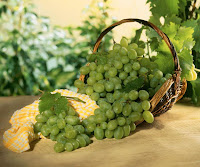This short-short story in Welsh Cakes: Book of Short Stories, is in two parts and was written, originally, as a writing exercise of how to tell the same story from two different points of view for a Novel Writing Course. It is longer than my normal post for this blog, but in order for you to get the gist of it, you need to see the whole thing.
"Part One: The Man
Archibald Summers wriggled his toes in a useless effort to rid himself of the gritty sand that had found its way into his open sandals. The slight breeze off the sea whispered through the thick hairs on his arms and legs but did little to cool his sun-scorched bald head. Trickles of sweat ran down his back and settled in the waistband of his shorts in a tight soggy band.
None of this discomfort swayed him from his steady gaze out to sea. He knew the ocean liner would appear on the horizon at any moment and then his body could go into the action its aching muscles craved.
Archie’s sea-doo was on the deserted beach ready to transport him and his package to his rendezvous with the ship’s captain. He had secreted the government papers, wrapped in their protective oilskin covering, in a rock cleft.
He was sure he had not been followed but his years of training and experience caused him to be cautious. His employer did not pay him these large sums of money to make mistakes.
At the appearance of the vessel in the distance, Archie dropped the binoculars to his chest and wiped the circles of sweat from his eyes. Steadying the glasses with a light hand he prepared to move toward the beach.
He hesitated as some sixth sense caused the hairs on the nape of his neck to stand up. Goose flesh rose on his skin with a cold prickling sensation. He whirled round and his eyes took in the person before him in a glance: the army fatigues, the eyes hidden behind dark glasses, the camouflaging scarf around the nose and mouth.
He estimated the size and strength of his opponent and moved to grasp the hand that held the knife, rendering it useless. Archie swung the lithe body around with little effort and clasped his would-be attacker in a strangle hold. Pathetic animal sounds came from his stalker’s throat.
Archie steeled himself for a counter attack as his captive’s left hand rose up in slow determination. Then, recognizing the distinctive family ring, he released his hold on his daughter, turned her round to face him and embraced her.
Archie hardly felt the knife as Josephine plunged it through his cotton shirt, under his rib cage and into his heart. He fell to the ground and attempted a smile to reassure her. He knew she’d done what she’d been sent to do and was proud of her.
In his last conscious moments Archie wondered whether she would be skilled enough to find the hidden package. He wanted her to succeed but not her mission; though he was well aware that, in the espionage business, she could not have one without the other.
Part Two: The Woman
Josephine Summers had committed the details of her assignment to memory. She turned with confidence onto the dirt road, pulled into the bush and concealed her motorcycle. She hiked along the trail, ignoring the sweat that ran down her chest and settled in the elastic of her bra. Her camouflage fatigues and combat boots were good protection from the rough terrain.
As she neared the sea, bush gave way to sparse grasses and Jo dropped to her knees at the foot of the incline. She sneered at the sight of her target standing in full view at the top of the rise, his back toward her. His holiday shirt and shorts in their bright Hawaiian colors made him an easy mark.
Josephine made her way up the bank. She was sure that any sound she made would be attributed to the breeze that played in gentleness through the sedge grass. Her knife was ready in her hand and she stood upright prepared to strike. In an instant her intended victim whirled round to face her and she lost her advantage.
He grasped her right wrist with such strength that she was helpless to wield her weapon. He twisted her round and imprisoned her in a choke-hold so that she was unable to speak. Her heart pounded in her ears.
Jo raised her left hand in a slow motion and felt her captor tense as he prepared himself for a counter attack. Then he released his grip and turned her round to embrace her. He must have seen the family ring on her finger.
Josephine took full advantage of her opportunity. She plunged the knife under Archie’s rib cage and into his heart. She ignored the chill that ran through her as she saw the look of pride and forgiveness pass across the face of the one person in her life who had shown her love.
Archibald lay helpless on the ground. For a moment Jo’s feet noticed the weight of the combat boots she wore and the irritating itch of the prickly heat on her body. She had experienced this before, and been trained to disregard it and concentrate only on the job at hand.
She turned away and saw the sea-doo waiting at the end of the deserted beach. To complete her mission she had only to find and retrieve the package of classified documents and return them to her employer.
Josephine walked down to the shoreline, looked around as her father had taught her and walked forward to a rock cleft. She felt the oilskin covered package under her hand and removed it from its hiding place. She walked away without looking back at her father’s lifeless body."




















